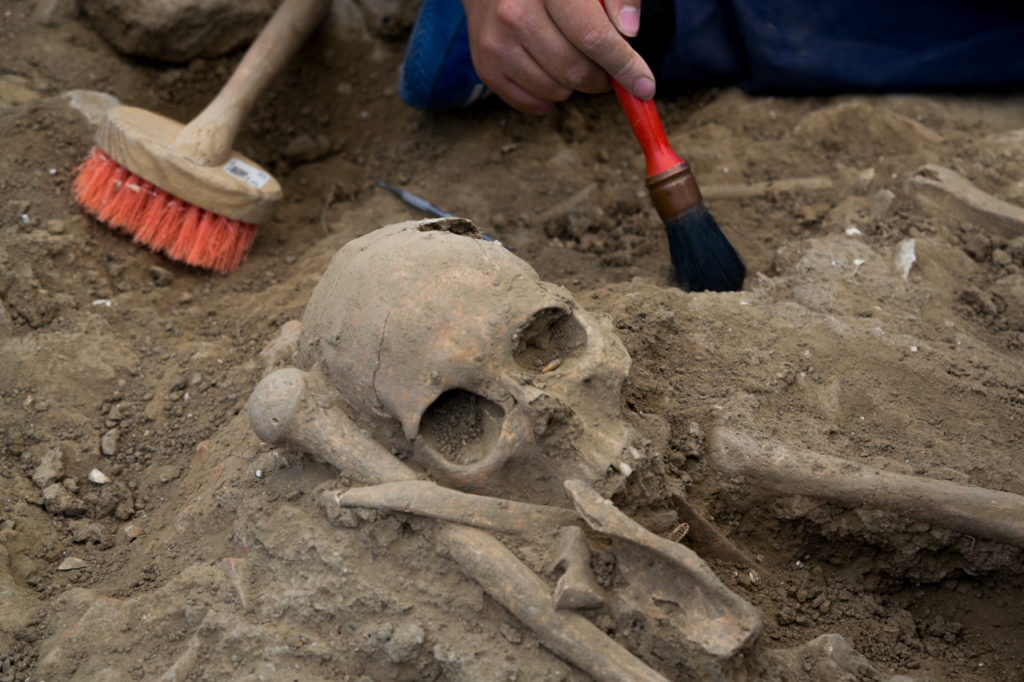The Working Group “National Strategy for Archeology” was created by a joint Order of the Offices of the Minister of Culture and the Minister of Science, Technology and Higher Education.
Its mission is to define a strategy for Portuguese archeology, addressing four themes: the national plan of archaeological works; the management of archaeological remains, including those of an anthropological nature, operated through a national network of archaeological reserves; preventive and accompanying archeology; and the impact of intensive agriculture and afforestation and/or reforestation actions on the archaeological heritage.
These are complex issues, with profound implications for Archeology in Portugal. In turn, today, archaeological activity takes place in different dimensions – research, safeguarding, conservation or enhancement – which influence the management of the territory, the economy, tourism, job creation or the community feeling of belonging.
The creation of this Group denotes not only the attention that the complexity of the issues covered deserves in the context of a comprehensive, concrete and informed cultural policy, but, above all, the moment of maturity that the archaeological activity reached in Portugal. In fact, from small private works to large public undertakings, going through environmental impact assessment processes, or others, Archeology truly contributes to shaping the country we are today.
Equally aware of the relevant role of Archeology in the country we want to be, the Working Group started a broad public hearing campaign so that all those interested in the matter can make their contribution, as in accordance with the Convention of Faro, on the value of cultural heritage for society, “each person, individually or collectively, has the right to benefit from cultural heritage and to contribute to its enrichment”.
To do this, simply complete the online survey, available at https://forms.gle/MaXRrEWRrVvpZAyJ9, and all contributions will be considered.
As a starting point for broad reflection, the Working Group carried out SWOT analyzes (Strengths, Weaknesses, Opportunities and Threats) in relation to the four themes under evaluation.
This exercise made it possible to draw a previous diagnosis of the panorama of archaeological activity in Portugal, identifying circumstantial and structural difficulties, but also existing and latent opportunities.
In summary, it should be noted that among the identified difficulties, the lack of human, budgetary and logistical resources on the part of public administration institutions with responsibilities in the management of archaeological activity stands out.
In contrast, relevant opportunities were identified, such as the promotion of scientific activity in Portugal or the increase in patronage in the social recognition of archaeological heritage.
Based on these analyses, an initial request for contributions was sent to various entities involved in the management, research, conservation and safeguarding of archaeological heritage, such as municipalities, central administration entities, educational institutions, non-governmental organizations or professional associations.
Also considering the central role that Portuguese municipalities play in safeguarding, managing, inventorying and publicly disclosing the archaeological heritage, a dedicated questionnaire was also sent to these institutions, in order to characterize the specific reference situation.
Subsequently, together with the documents analyzed and produced in the course of the Group's work, these contributions will be gathered in a preliminary report that will be put up for public discussion, in a process that is also intended to include open sessions to be held in the various regions of the country. .
All these contributions will contribute to the definition of a shared, sustainable final strategy that responds as fully as possible to present and future challenges. Such a strategy will be all the more effective the more voices that participate in its elaboration. So, now is the opportunity for everyone to speak out. The future of Archeology in Portugal passes through here!
Author António Batarda Fernandes is Head of the Division of Inventory, Study and Safeguarding of Archaeological Heritage, General Directorate of Archaeological Heritage; Coordinator of the Working Group "National Strategy for Archeology"



















Comments